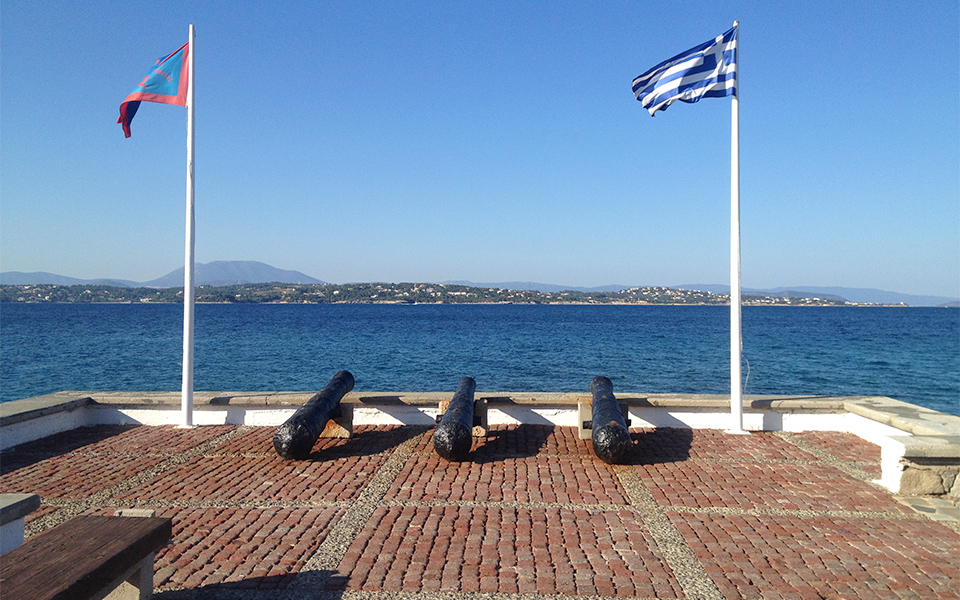The great geopolitical shifts (including the American and French Revolutions, the Napoleonic Wars, and the decline of the Ottoman Empire and the traditional shipping centers) that occurred in the second half of the 18th century drastically changed the status quo, particularly in Europe.
In the eastern Mediterranean, the defeat of the Ottoman Empire in three Russo-Turkish wars was crucial for occupied Greece. The Treaty of Kuchuk-Kainarji in 1774 imposed, among other things, new terms for maritime trade in the Black Sea and the Aegean, whose waters Greek ship-owners had previously sailed with vessels flying the Ottoman flag. From the treaty onwards, Greek ships would carry Russian or British flags under more beneficial terms. Many of these boats were equipped with cannons to defend against the threat of piracy that plagued the Mediterranean at the time.
As a result, on the eve of the Greek Revolution, the Greeks possessed a significant merchant marine fleet, one which was easily transformed into a military fleet that contributed, together with victorious land battles, to the liberation of the homeland through significant naval victories. At the same time, the Revolution of 1821 was not just a monumental achievement for modern Hellenism; it was also the most important event of the 19th century, one that had far-reaching consequences for Europe and led to radical changes in the Balkans. The Greeks, a largely insignificant number of no more than 600,000 enslaved people, took on a powerful empire and shocked the world with their incomparable daring and spirit, an elan that was evident throughout their monumental struggle.
Both enemies and friends of the Greeks soon realized the important effects this monumental event would have on international politics. The Revolution of 1821 stirred the liberal consciousness of the entire world, creating an irresistible wave of philhellenism that was crucial to strengthening and supporting the struggle for independence. What followed was a veritable delirium of enthusiasm and support for Greece on a global scale. Foreign poets, politicians, diplomats, members of the military, artists, intellectuals, scholars, and people from every social class mobilized to contribute – each in his field and according to his ability – to the Greek cause, in the face of what the Holy Alliance advocated. Many rushed to participate in battles, putting their lives on the line for freedom, while others glorified the revolution in texts and visual representations, recognizing in the faces of the Greek fighters contemporary representations of those warriors’ illustrious ancient forefathers.

Almost 400 years of occupation were more than enough to fire the embers of the Revolution. This struggle, long in the making, matured and was brought to fruition thanks to the contribution of a number of ethical, intellectual, spiritual and military factors, including the clergy, folk poetry, intellectuals, the Klephts and the Amartoli, the Souliotes, the Greek navy, Lambros Katsonis, and the Greek diaspora. Rigas Feraios (Velestinlis) and Adamantios Korais were important, too; the sacrifice of the former and the wisdom of the latter, together with Skoufas, Xanthos, Tsakalof and other members of the Filiki Eteria (Society of Friends), sowed the seeds of revolt, preparing and supporting the Revolution in every way, just as Alexandros and Demetrios Ypsilantis and Ioannis Kapodistrias did in their way. Ultimately, the faith in the destiny of the nation and the desire for liberty came above everything else. And it was about time!
Greek shipping was a great asset in this sacred struggle. The seafaring Greeks of pre-revolutionary times were transformed under the flag of national revolt: shipmasters became admirals and commanders; sailors from the maritime cooperatives became fire-ship captains, “burners” and marines; and grain-carrying ships became warships and fire boats. During the Occupation, braving the waves and dominating the Aegean had given the oppressed Greek sailors a sense of power and a spirit of liberty. They had developed commerce, amassed great wealth, created bonds and enjoyed, in foreign harbors, privileges they could not enjoy back home; they had breathed the air of freedom and returned to their homeland with unbroken spirits and innovative ideas, conveying faith and optimism.
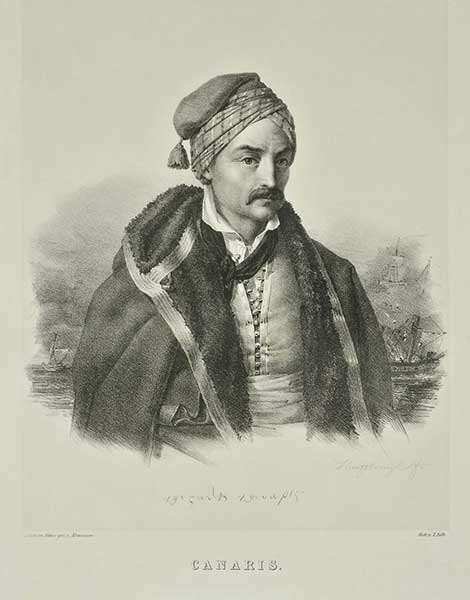
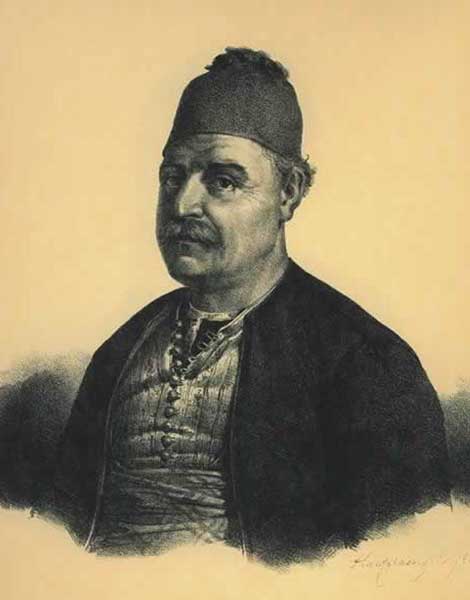
At the same time, the constant threat of Algerian and Berber pirates who were terrorizing the Mediterranean at the time led to Greek ship-owners and crew members developing battle experience and courage under fire.
According to an April 17, 1821 logbook entry from a ship owned by Captain Iakovos Tombazis, the initial Greek fleet comprised of 11 ships from Hydra, seven from Spetses and three from Psara. Each vessel carried 12 to 18 medium-range cannons and had a crew of 70 to 120 sailors – and what sailors they were!
The Ottoman Kapudan Pasha (or Grand Admiral) Kara Ali, chided by the British Admiral Thomas for the successive humiliations the great Turkish fleet had suffered at the hands of the Greeks in their small merchant ships, confessed: “It is not ships that win, but people. The Greeks may have small ships, but their seamanship is unsurpassable and they know how to maneuver their vessels better than anyone.” The words of historian Maria Efthimiou come to mind: “The history of the Greeks travels back in time on a boat called the Greek language. Over time, seamanship and language have shaped the characteristics of this restless people…”
Greek shipping did not just offer its fleet and manpower to the cause. For all practical purposes, it was also its sole financier. The mainland, poor and battered, could not offer enough supplies. Thus, the island of Hydra became not only the seat of the admiralty of the Revolution, but also the main source of supplies and provisions for both the armed forces on both land. Hydriot Andreas Miaoulis, thanks to his leadership qualities, daring and courage, was declared admiral of the revolutionary Navy, but it was Konstantinos Kanaris from Psara, an unknown and humble sailor, who became a symbol of heroism and self-sacrifice as his exploits were immortalized in the works of great European writers and artists. The destruction of the proud Ottoman flagship just off Chios, equipped with 84 weapons and 2000 officers and crew-members, was a feat of superhuman daring and heroism – an exploit that inspired the admiration of the entire European continent, adding to the prestige that the Greek revolutionary forces had already acquired.
It is undoubtedly no surprise that Kanaris has gone down in history as a symbol of courage, virtue, daring and patriotism; he is considered one of the bravest, wisest, most modest and selfless fighters to ever emerge from the flames of the nation’s struggle.
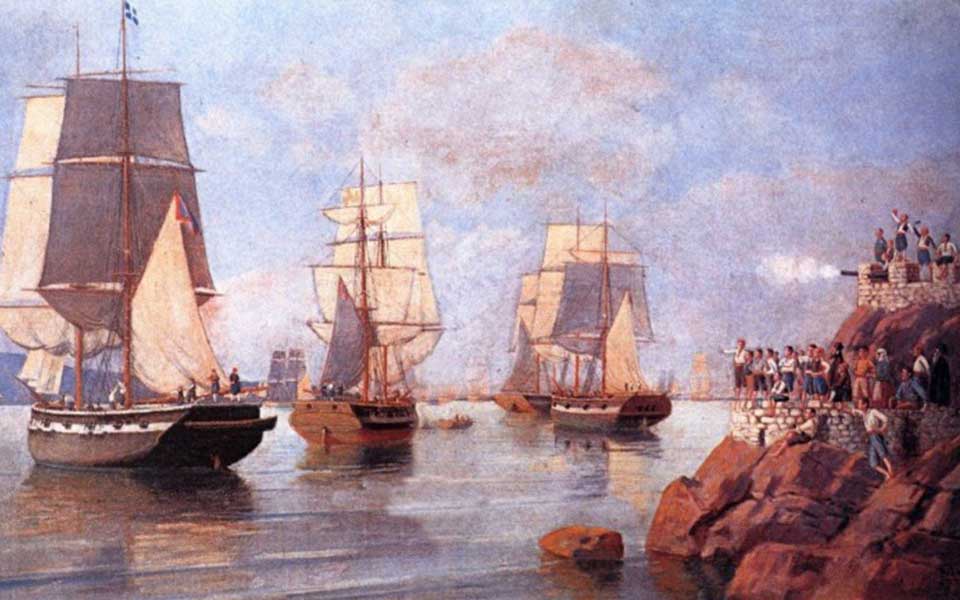
The contribution of Greek women to the cause, however, was just as essential. Of these, Laskarina Bouboulina, who had joined the Filiki Eteria (Society of Friends) early on, stands out. Twice a widow, she captained a large ship with 18 cannons in Spetses – the island she hailed from. The crew of her ship “Agamemnon” participated in numerous military operations with extraordinary bravery and fiery dedication to the nation, as Bouboulina continued in the same tradition as the women of Sparta, renowned in ancient times. Manto Mavrogenous was one of many other women who also rose to the occasion.
This year, there’s not a single Greek who isn’t looking back fondly on the grand events of 1821. The memory of 1821 is alive in every corner of the country, in every town and village; the memory of breaking the shackles of slavery stands out in the minds of all Greeks who walk the sacred earth of the homeland, of our sailors scattered across the globe, and of the Greeks of the diaspora. As we think of them, we pay tribute to all the heroes of the Revolution, to the fighters and the civilians alike, and we hold them up as a reminder that the fate of this land is to give birth to men such as Kolokotronis and Kanaris, always willing to sacrifice their all in the name of liberty. May the lessons of the Revolution – that unity leads to triumph while division to catastrophe – always guide our nation’s path!
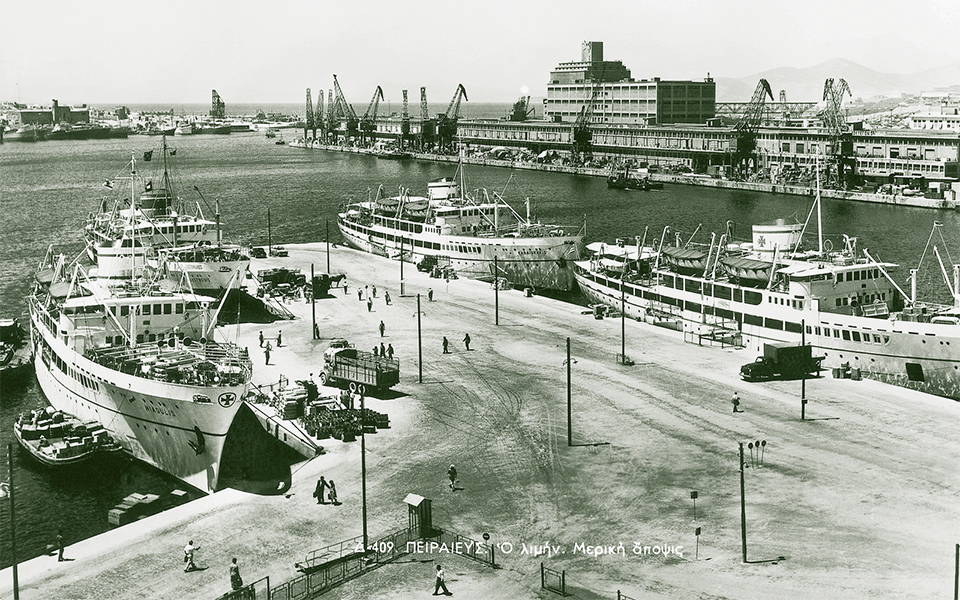
In our times, we can see a paradox: while the number of Greek-owned ships is steadily increasing each year, the number of Greek shipmen is waning; from almost 145,000 in the 1950s to less than 20,000 today. If the state, Greek ship-owners and seafarers themselves do not wake up and take action without delay, implementing drastic, forceful, coordinated and competitive measures, our shipping industry will be de-Hellenized – it will lose its soul, a soul comprised of Greek seamen, and history will not forgive any such negligence, neglect or indifference on our part. Special attention needs to be given to the education and training of young Greeks, both male and female, starting with the pressing need to encourage them to love the sea, a source of blessings and benefits for our people over the course of its long history. We need to let them know that, by deciding to enter this field professionally, they will become ambassadors of the Greek shipping tradition around the world, promoting the ideals of Greek valiance and dignity.
If we are unable to achieve this, and end up with a Greek shipping industry that has just a handful of Greek seamen to defend it, how will we offer opportunities to future generations of men and women to become someone like Miaoulis, Kanaris, Tobazis, Sahtouris, Koudouriotis, Bouboulina or Manto Mavrogenous – or even like Livanos, Onassis or Niarchos? To keep our Greek seas Greek, to proudly fly the Greek flag across the globe, to draw strength from its power and being overcome by feelings of national pride: this is what we need, and not the lowering of the flags on our ships as a matter of routine and without empathy or pride, as foreign crew members now do, due to the lack of Greek personnel!
Has anyone measured or even imagined the power and glory our nation will possess, or the wealth our society will gain, when our Greek-owned ships, carrying the Greek flag, are manned again by Greek crews? The salaries alone account for some $6 billion per year.
The time has come to apply the recommendations of scientific institutions such as the Foundation for Economic & Industrial Research in order to realise the potential contribution of Greek shipping to the Greek economy.
*Captain Panagiotis N. Tsakos is a Merchant Marine Captain.

